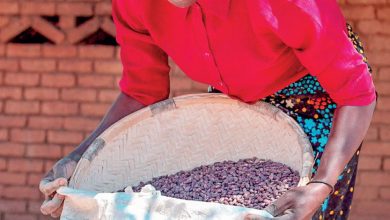Malawi urged to exploit world bank investment
Following the World Bank’s announcement that it will double its financial commitment to the global agricultural sector, local agriculture experts have asked policymakers to put in place systems to capitalise on the opportunity.
On Friday, World Bank president Ajay Banga announced that the Bretton Woods institution will double its agri-finance and agri-business commitments to $9 billion (about K15.7 trillion) annually as part of a broader strategy to create a robust ecosystem for the sector.
He said in a statement posted on the bank’s website www.worldbank.org: “The World Bank’s ecosystem approach moves us beyond fragmented efforts to a constellation of solutions that includes everything from warehousing to logistics to production, but with smallholder farmers and producer organisations at the centre.

Malawi, being one of the 189-member countries of the
World Bank, is expected to benefit from this upsurge of global financing to the agriculture sector, the main driver of the country’s economic growth accounting for about 25 percent of gross domestic product.
Minister of Agriculture Sam Kawale was yet to respond to our questions on how Malawi can take advantage of this opportunity.
But agriculture policy development expert Tamani Nkhono-Mvula said in an interview yesterday that the increased financing could present opportunities for Malawi to secure additional financing through World Bank-supported instruments.
He urged policymakers to ensure that financial
support from the World Bank and other global financial institutions empower smallholder farmers with resources to venture into value-addition to boost exports.
He said: “We should also strive to help large-scale commercial farmers through the mega farms.
“Interventions such as the greenbelt initiative have failed to take off because they lack financing, so we can use the additional financing to finance these projects.”
On his part, agriculture economist Steve Kayira said in an interview yesterday that with this increased financing, the World Bank could expand support for Malawi in the agriculture sector.
“This would be in effort to ease the pressures on the country’s economy. However, this would equally depend on the performance of other World Bank-funded projects,” he said.
Kayira urged policymakers and other stakeholders to create robust value chains of the alternative crops.
Apart from Agriculture Commercialisation (Agcom) project, the multilateral financial institution also supports Malawi with a $240 million (about K420 billion) grant through the Regional Climate Resilience Programme for Eastern and Southern Africa.
In the Agcom first phase, the World Bank gave Malawi $95 million (about K166 million) while in the second phase, the country has received $265 million (about K464 billion).





